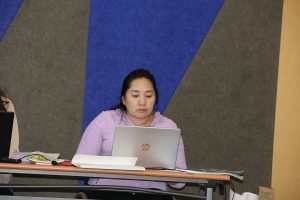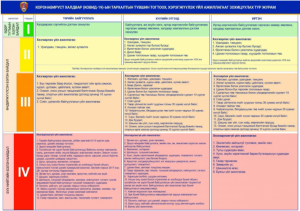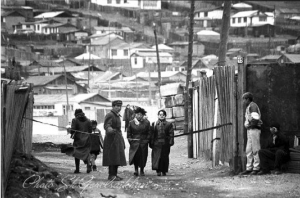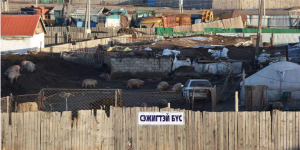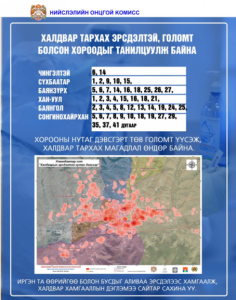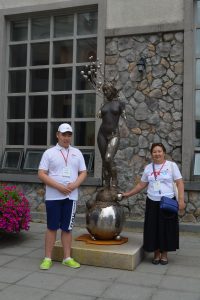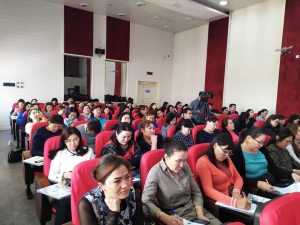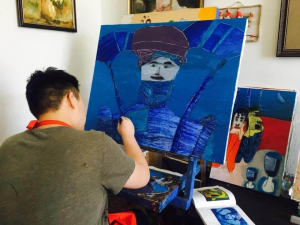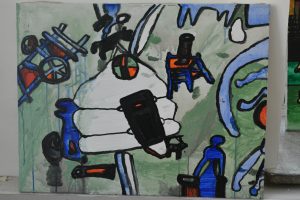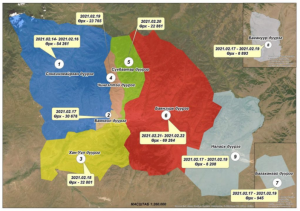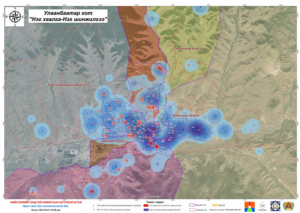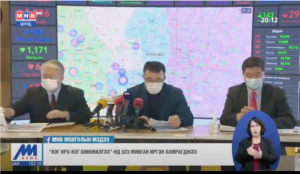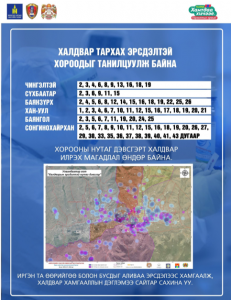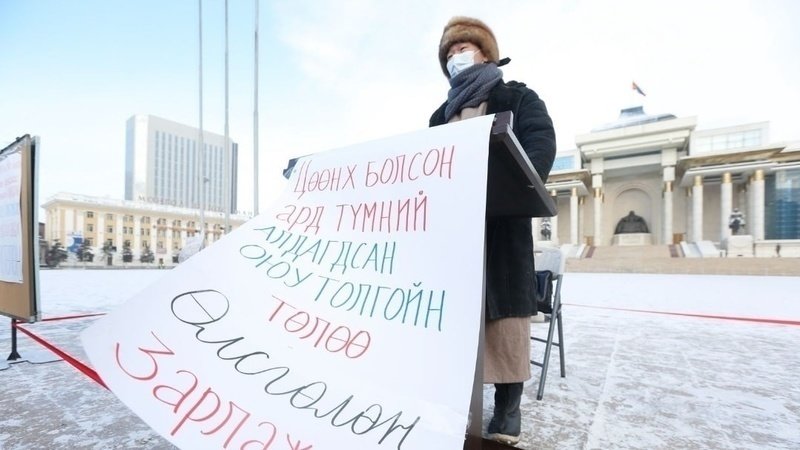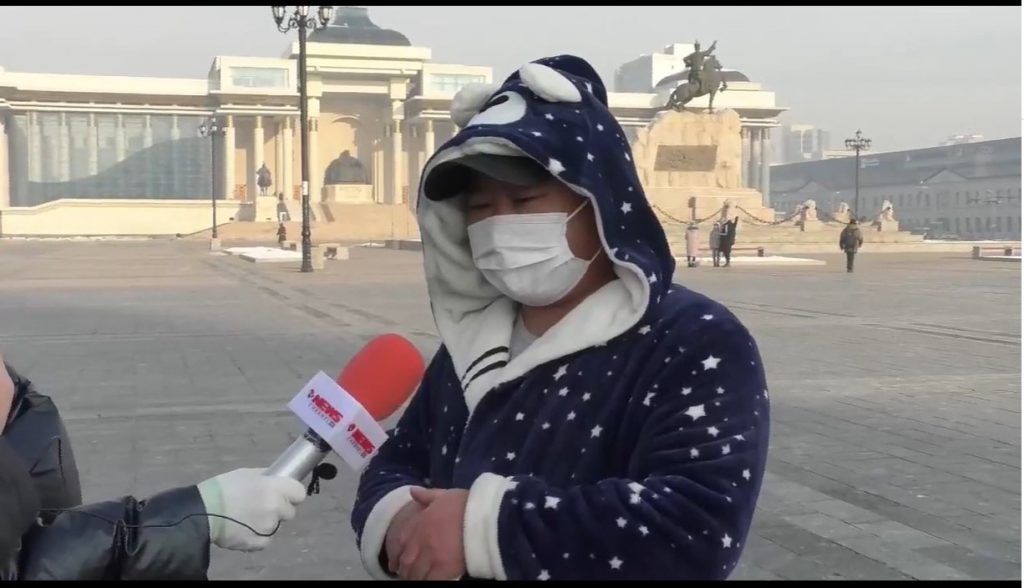By Julian Dierkes and Marissa J. Smith
The constitutional amendments of Nov 2019 seemed to result from a bargain between Pres. Battulga and the MPP that would allow him to run for another term under the new six-year single term. This seemed to offer some chance that the lead-up to the election might be relatively orderly and that the focus would shift to nomination battles, especially within the DP.
So much for that hope…
As Marissa, Bulgan and I have described in The Diplomat, Pres Battulga issued a presidential decree banning the MPP on Apr 20 2021 and pointed to the purported militarization of the party and of the “Military Union” that frm PM Khurelsukh has been cozy with, as evidence of unconstitutional activities and reason for the ban.
It is hard to think of this as anything but a desperate grab to hang on to power.
All very Trumpian in this regard, as is the possible response of impeachment efforts.
The Military?
References to the military are particularly worrying in this context. While both main parties have arguably long engaged in activities that threaten elements of democracy (corruption, undermining the independence of the judiciary, undermining the legitimacy of elections through unsubstantiated claims of electoral fraud etc.), the military has really stood aside, marking an important difference between Mongolia and some of the populism of authoritarian regimes across SE Asia, for example. The military has carefully stayed out of politics, and politicians have largely stayed away from the military.
Battulga claims that this ended when Khurelsukh seemingly started cozying up to the military as prime minister. His personal background as a political officer in the army in the early 1990s made this seem somewhat natural, however. In his way, Khurelsukh is a military man, he clearly seems to enjoy an association with the military, possibly even some of the pomp and circumstance of uniforms, parades, etc.
The Mongolian Joint Military Union (Монгол цэргийн нэгдсэн холбоо) was started by then-PM Khurelsukh in April 2019. Formally, it is an NGO. It is focused very much on retired military veterans from all services (thus “Joint”, encompassing military, border troops, internal troops, marshal service, police, intelligence, emergency troops). There are no formal links to the military and active duty personnel are not formally involved. The formation of the Military Union is perhaps most rooted in the relatively young retirement age of personnel (typically in their 50s) when they might want to continue to be actively involved. Activities of the Military Union seem to be focused on organizing gift-giving during lunar new year, inviting them to the organization’s anniversary or some celebratory events, and raising funds for funerals or dealing with sickness. The Military Union also advocated on behalf of retirees and very much less so, on behalf of the military.
Khurelsukh’s association with the military has seemed quite innocuous and more of a personal interest. There have been no hints of any politicization of the military outside of this “boosters club”, neither through recruitment of officers or recruits into political causes or elections, nor through any visible presence of the military in politics.
Beyond the “Military Union”, there seems to be no clear basis for Battulga’s claim about a militarization of the state or a politicization of the military by Khurelsukh or the MPP, making these claims seem more like a Trumpian grab for outrageousness to lay claim to public opinion somehow.
Battulga is showing his skill here in simultaneously engaging the Mongolian public and international audiences. In his statement delivering the order to disband the MPP, Battulga alleged not just that Khurelsukh had spoken with the military, or gathered officers, but that the “Military Union” integrated party, local government, and military units across the country. Not only is this a specific allegation, it is one that is aimed to rankle not only a DP base smarting from losses of some of their few former rural strongholds to the MPP, but also Ulaanbaatarites, who fear that rural people themselves might pose “threats to national security,” whether due to being prone to manipulation or having their own particular local identities, interests, and enterprises. Speaking to international audiences that have in the past been supportive of the DP, who know little about Mongolia except perhaps its location between Russia and China and its former status as “Soviet satellite,” Battulga and allies can gesture towards the recent military re-takeover in Myanmar and rising concerns about China and the CCP’s military activities. And unfortunately, in the last 24 hours, we have seen DP stalwarts who have not always been supportive of Battulga reinforcing Battulga’s narrative of the MPP as militarized and “communist” on twitter.
At the same time, we must emphasize that there is no direct evidence that either Battulga’s nor the MPP’s allegations about attempted cooptation of the military are more than that — allegations. The Chief of General Staff has given a press conference reiterating that the Mongolian military is “independent of politics.”
“Монгол Улсынхаа аюулгүй байдлыг хангах нь юу юунаас илүү https://t.co/GxF5VUkQgi pic.twitter.com/cB5uyRwMV0
— News.mn (@News_mn) April 20, 2021
Again, bringing up militarization is an especially effective (i.e. incendiary), move on the part of Battulga, which was returned to Battulga so far from the MPP side only by the statement of one MPP MP, that Battulga had reportedly spoken with the Chief of General Staff, at the presentation of a counter-statement against the disbanding order.]
Populism
This clinging of power seems consistent with Battulga’s presidency in general. Even after four years, it remains entirely unclear why Battulga has wanted to be president. There is no visible political agenda beyond power and his own political survival. Instead, Battulga has largely engaged in little-thought-out, populist initiatives like the flaring up of support for the death penalty or his attempts to be seen as the source of populist spending measures. There is no political program there.
Yet, in clinging to power now, Battulga is tapping into some popular trepidation about the prospect of a Khurelsukh election victory that would hand MPP power over the presidency in addition to its dominance of parliament.
Trepidation about MPP Dominance
By tapping into this fear, Battulga’s confrontation of the MPP may be paving the way for a stronger anyone-but-the-MPP vote in the presidential election. Much of the specifics there would obviously depend on the constellation of nominees, but it is significant to note that Battulga’s own election in 2017 was likely driven more by anti-M Enkhbold sentiment and some attempt to balance party power, than the attractiveness of Battulga’s offering.
Authoritarian Past
About that trepidation though… I am not entirely sure that I understand quite what is behind this. Factors may obviously include the MPP’s pre-1990 authoritarian history. Some of that authoritarian history has not really been a focus of attention as was clear in the recent 100-year-anniversary celebrations. Yet, none of the current actors have any particular personal ties to that authoritarian history. Notably, Oyun-Erdene is the first PM for whom the revolution came while he was still a child.
Recent Past
I do not see any evidence for any strong authoritarian tendencies in recent MPP policies. For example, the MPP super-majority has ruled parliament since 2016, confirmed in last year’s election. Never mind that to me both of those elections were quite legitimate, so that I look at the MPP as appropriately elected by Mongolians. But has the party acted like a dictator in parliament? The most critical example would probably be the 2019 constitutional amendments as such amendments have the potential to change the rules of the game. To me, the various amendments seem neither predominantly partisan, nor do they seem to erode democracy. Arguably, the change to a six-year single-term presidency may have been in part anti-Battulga (last week’s Цэц decision could be taken as evidence of that), but it is not depriving Mongolians of their ability to select the president.
Likewise, the strengthening of some parliamentary powers and of the PM benefit the current incumbents to some extent, but as said above, Mongolians certainly had a chance in 2020 to elect a different parliament and any other government would also have benefitted from additional powers given to the PM.
Accusations of corruption and state capture have been traded between the parties for a long time now. While direct evidence is lacking (including in the various cases brought against former MPP officials), there is no obvious reason to conclude that members of the MPP are particularly more (or less) corrupt than members of the DP.
And some of the organizational strength of the MPP surely is a legacy of the authoritarian past, but the DP and other parties have had 30 years to build up their own strength. There is some path dependence in this, obviously, highly organized local power probably breeds more local power, but even then I find it difficult to attribute this to authoritarian tendencies.
Comparative Perspective
It is also important to note that a landslide win won in legitimate elections, is not a bad thing or anti-democratic per se. While France’s presidential polity has seen times of the (more powerful than in Mongolia) president from one party, but the Assemblée National dominated by another party (cohabitation), the opposite situation has also existed without anyone really fearing the arrival of single-party rule. The same could be said of the U.S. where there have been times of presidents being able to rely on Congress dominated by the same party, and the opposite situation. There is less of a comparison in parliamentary systems where there is no obvious “balancing” power to parliament. But even when majorities in the Bundesrat, representing the German states, have overlapped with coalition majorities in the Bundestag, parliament, that has not signalled single-party rule.
In sum on this trepidation then, many Mongolians seem to have expressed a clear preference for a balance between political forces, leading to the swinging back and forth between MPP and DP governments. This changed with the landslide re-election of the MPP in the 2020 election. Even if some of the observations above capture reality, that does not negate the preference that many Mongolians might hold. Even then, however, that preference might provide motivation for voters not to support Khurelsukh (or any other MPP nominee), but it is not evidence of a trend toward single-party rule.
Conclusion
Two of the main claims made by Battulga in his decree, i.e. militarization and one-party dictatorship, seem somewhat implausible to us. That does not mean that they do not capture elements of facts nor that many Mongolians might not lend credence to them, but it does temper our concerns about what he alleges significantly.

 Follow
Follow